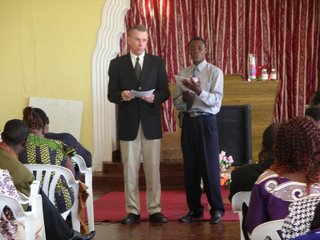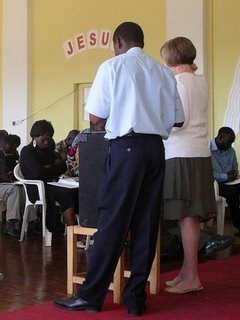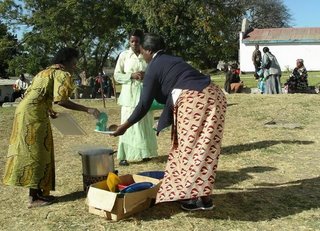


The HIV/AIDS virus has taken center stage in feared scenarios of life. When teaching to a group on any subject in Africa, the leaders take the opportunity to teach on STD's, most of all HIV. Zambia had reached an expected life expectancy of 60 years old around 1980; that life expectancy has now fallen to 37 years old because of AIDS.
While teaching on marriage, we had the perfect opportunity to speak about sex and AIDS. While Donna Jestes spoke to the women outside on the role of the wife in marriage, Mike Jestes spoke to the men inside on STD's. In our next session, Ed spoke to the men on the role of the husband and Mike spoke to the wife on STD's.
Misinformation abounds about AIDS. A common belief is that if a man, who is HIV positive, has sex with a virgin, he will no longer have HIV. So, many older men have sex with younger women, infecting them. The group being infected most are 15-24 years women through heterosexual relationships.
Mike Jestes is executive director of Oklahoma Family Policy Council (associated with Focus on the Family). OFPC does the most extensive STD/Abstinence education training of anyone in the state of Oklahoma. His extensive experience was valuable in communicating the facts to both the men and women in Zambia.







